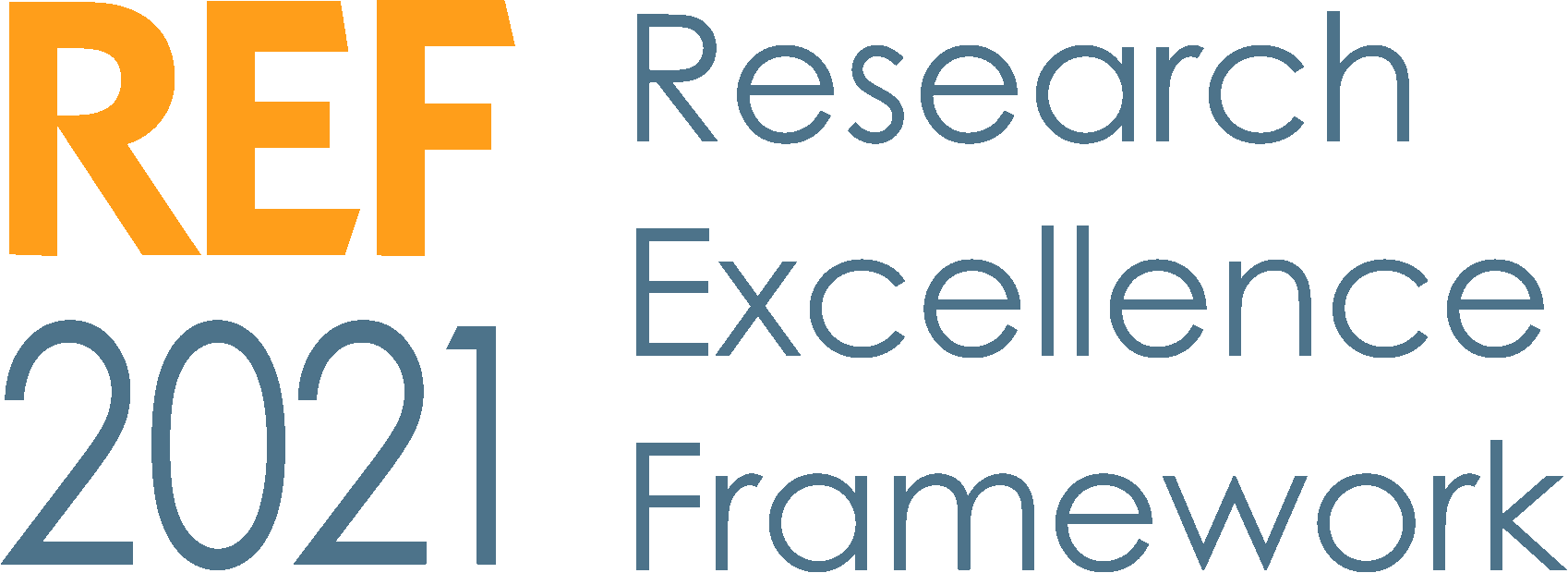Course information
The course is ideal for recent graduates, coaching practitioners in high-performance sport and those in development coaching roles. Our contextualised learning environment also caters for those who want to engage in professional development, with career aspirations in education.
As an MSc student, you’ll undertake a significant piece of applied research, contributing new knowledge to an area of your own work or wider coaching environment.
With both full and part-time learning options, you could study alongside existing employment or other commitments.
Academic
2:1 honours degree in a relevant subject. Students with 2:2 and relevant experience will be considered on a case by case basis.
Non-academic
Students with non-relevant qualifications but with sufficient work experience or professional experience will be considered on an individual basis.
International
In addition to the academic qualification an IELTS 6.5 or equivalent is required.
Please contact us for further information.
You’ll be required to work in a coaching role alongside your studies as part of your placement. This can be a pre-existing coaching context, or we can support students to secure a role in our own performance and development sports teams on campus, but this cannot be guaranteed.
Career destinations for the degree include:
- Professional sports coach
- PhD study
- School sport coach
- University or college lecturer
- Community or developmental coach
We're committed to supporting you to fulfil your unique potential while you're here so that you can achieve your personal and professional goals.
Duration
One year, full-time
You can study each of these qualifications full-time and subsequently complete each within one year.
Two years, part-time
We offer a flexible part-time option to help students manage their studies alongside other commitments. This option can be tailored to suit your own needs, enabling you to complete your qualification in two years. Please enquire for further details.
Your support network
You'll benefit from a strong support network from day one. This will range from your lecturers, supervisors and personal tutor to our specialist academic (Achievement and Success Centre), employability (Employability, Skills and Careers) and wellbeing teams.
Your learning experiences
You'll experience a range of teaching methods to strengthen your understanding of topics, including lectures, workshops and practical sessions.
Course information
Overview
The course is ideal for recent graduates, coaching practitioners in high-performance sport and those in development coaching roles. Our contextualised learning environment also caters for those who want to engage in professional development, with career aspirations in education.
As an MSc student, you’ll undertake a significant piece of applied research, contributing new knowledge to an area of your own work or wider coaching environment.
With both full and part-time learning options, you could study alongside existing employment or other commitments.
Entry requirements
Academic
2:1 honours degree in a relevant subject. Students with 2:2 and relevant experience will be considered on a case by case basis.
Non-academic
Students with non-relevant qualifications but with sufficient work experience or professional experience will be considered on an individual basis.
International
In addition to the academic qualification an IELTS 6.5 or equivalent is required.
Please contact us for further information.
Employability
You’ll be required to work in a coaching role alongside your studies as part of your placement. This can be a pre-existing coaching context, or we can support students to secure a role in our own performance and development sports teams on campus, but this cannot be guaranteed.
Career destinations for the degree include:
- Professional sports coach
- PhD study
- School sport coach
- University or college lecturer
- Community or developmental coach
How you'll study
We're committed to supporting you to fulfil your unique potential while you're here so that you can achieve your personal and professional goals.
Duration
One year, full-time
You can study each of these qualifications full-time and subsequently complete each within one year.
Two years, part-time
We offer a flexible part-time option to help students manage their studies alongside other commitments. This option can be tailored to suit your own needs, enabling you to complete your qualification in two years. Please enquire for further details.
Your support network
You'll benefit from a strong support network from day one. This will range from your lecturers, supervisors and personal tutor to our specialist academic (Achievement and Success Centre), employability (Employability, Skills and Careers) and wellbeing teams.
Your learning experiences
You'll experience a range of teaching methods to strengthen your understanding of topics, including lectures, workshops and practical sessions.
Qualifications and modules
The course has been designed to engage you in the process of applying theoretical principles to your practice, enabling you to develop as an academically informed reflective practitioner.
Industry-informed and relevant modules will support you to develop a deeper understanding of coaching, coach education and high-performing coaching environments, focusing on the practical nature of the discipline.
You’ll be encouraged to focus on your existing coaching context, with opportunities to tailor your assessments to help meet the demands of your professional role.
These qualifications form part of and are at the same level as the full master’s degree. They provide the ideal opportunity for you to develop your professional expertise via shorter part-time qualifications to fit around commitments, whilst allowing flexibility to progress each qualification through to the next level, including the full master’s degree.
Postgraduate Certificate
The Postgraduate Certificate includes the initial group of core modules.
Postgraduate Diploma
The Postgraduate Diploma includes these core modules alongside focused research in a coaching context that could reflect your current role or future ambitions.
The programme architecture provides a blend of theory, practical and reflection-based sessions, alongside the student’s placement, these combine to allow a comprehensive and personally contextualised learning experience.
Module credits
Upon successful completion of your modules you’ll gain academic credit that accumulates towards your award. The marks you gain may contribute towards your final master’s degree differential award (pass, merit or distinction).
Deconstructing Coaching Practice (Cert, Dip, MSc)
This module will provide students with a platform to deconstruct their coaching practice using theory. Here, students will experience a theory-practice-reflection iterative cycle, which enables them to challenge their existing practice, improve their self-awareness with the aim to become theoretically-informed and practically-aware practitioners.
Reconstructing Coaching Practice (Dip, MSc)
This module will provide students with a platform to reconstruct their coaching practice using theory. Here, students will experience a theory-practice-reflection iterative cycle, which enables them to challenge their existing practice, improve their self-development with the aim to become theoretically-informed and practically-aware practitioners.
Postgraduate Industry Placement Experience (Cert, Dip, MSc)
This module will bridge the gap between your academic preparation and the real-world environment. You’ll be required to source and complete 200 hours of industry-based placement in a pre-approved environment.
Reflective Practice (Dip, MSc)
Developing critical reflective practices and their use in coaching.
The Scientific Coach (MSc)
Prepares students to review current research and conduct their own research projects in the area of coaching.
High Performing Environments (Cert, Dip, MSc)
Students will develop a critical understanding and appreciation of high-performance leadership and how to build and sustain a high performing environment.
Sports Coaching Extended Project (MSc)
This is a portfolio module allowing students to create assessment outputs such as review reports and presentations that represent both coursework within their course pathway and resources for their workplace colleagues, line management and wider organisation.
Qualifications and modules
MSc degree
The course has been designed to engage you in the process of applying theoretical principles to your practice, enabling you to develop as an academically informed reflective practitioner.
Industry-informed and relevant modules will support you to develop a deeper understanding of coaching, coach education and high-performing coaching environments, focusing on the practical nature of the discipline.
You’ll be encouraged to focus on your existing coaching context, with opportunities to tailor your assessments to help meet the demands of your professional role.
Postgraduate Certificate and Postgraduate Diploma
These qualifications form part of and are at the same level as the full master’s degree. They provide the ideal opportunity for you to develop your professional expertise via shorter part-time qualifications to fit around commitments, whilst allowing flexibility to progress each qualification through to the next level, including the full master’s degree.
Postgraduate Certificate
The Postgraduate Certificate includes the initial group of core modules.
Postgraduate Diploma
The Postgraduate Diploma includes these core modules alongside focused research in a coaching context that could reflect your current role or future ambitions.
Modules
The programme architecture provides a blend of theory, practical and reflection-based sessions, alongside the student’s placement, these combine to allow a comprehensive and personally contextualised learning experience.
Module credits
Upon successful completion of your modules you’ll gain academic credit that accumulates towards your award. The marks you gain may contribute towards your final master’s degree differential award (pass, merit or distinction).
Compulsory modules
Deconstructing Coaching Practice (Cert, Dip, MSc)
This module will provide students with a platform to deconstruct their coaching practice using theory. Here, students will experience a theory-practice-reflection iterative cycle, which enables them to challenge their existing practice, improve their self-awareness with the aim to become theoretically-informed and practically-aware practitioners.
Reconstructing Coaching Practice (Dip, MSc)
This module will provide students with a platform to reconstruct their coaching practice using theory. Here, students will experience a theory-practice-reflection iterative cycle, which enables them to challenge their existing practice, improve their self-development with the aim to become theoretically-informed and practically-aware practitioners.
Postgraduate Industry Placement Experience (Cert, Dip, MSc)
This module will bridge the gap between your academic preparation and the real-world environment. You’ll be required to source and complete 200 hours of industry-based placement in a pre-approved environment.
Reflective Practice (Dip, MSc)
Developing critical reflective practices and their use in coaching.
The Scientific Coach (MSc)
Prepares students to review current research and conduct their own research projects in the area of coaching.
High Performing Environments (Cert, Dip, MSc)
Students will develop a critical understanding and appreciation of high-performance leadership and how to build and sustain a high performing environment.
Sports Coaching Extended Project (MSc)
This is a portfolio module allowing students to create assessment outputs such as review reports and presentations that represent both coursework within their course pathway and resources for their workplace colleagues, line management and wider organisation.
The modules contain a mixture of scheduled learning – lectures, workshops, practical sessions and online delivery – alongside independent learning. Students are expected to dedicate at least two to three hours of independent study per contact hour.
The course is taught in English.
| Contact learning | Placement learning | Independent learning | |
| MSc degree | 12% | 11% | 77% |
| Postgraduate Diploma | 13% | 17% | 70% |
| Postgraduate Certificate | 11% | 33% |
56% |
You'll be assessed through a mixture of practical exams and written assignments. Many of the modules will be marked based on a mixture of assessment types, whilst others will be based solely on one type of assessment.
Feedback will be given in written form, with the option to discuss all feedback with academic staff.
| Written exam | Practical exam | Coursework | |
| MSc degree | 0% | 29% | 71% |
| Postgraduate Diploma | 0% | 31% | 69% |
| Postgraduate Certificate | 0% | 25% | 75% |
This master’s course is made up of two semesters, within which you’ll study compulsory and optional modules on different topics.
Semesters normally consisting of 12 weeks of scheduled teaching and then assessment weeks, with an overview below:
- Scheduled teaching takes place on a Monday and Tuesday 10:30-12:30 and 13:30-15:30.
- This condensed tailored timetable allows students to study flexibly around existing work-life and sporting commitments, coach/play in the morning via our Sports Academy and/or allow for those students who are required to travel.
Please visit our student finance page for information on tuition fees and student loans, as well as non-repayable grants, bursaries and scholarships, eligible to different groups, to support with study costs.
Studentship scheme
Our Postgraduate Studentship Scheme provides a fantastic development opportunity, enabling you to complement your postgraduate study with important real-world research within a paid position at Hartpury.
Performance Sports Academy membership
Find out costs and details for joining one of our performance Sports Academy teams.
Hartpury gym
Find out about costs and details for joining the Hartpury gym.
Accommodation and living costs
Please visit our student accommodation page for details.
Our Resource Library is where you'll find all the essential details about Hartpury University's courses. It includes Programme and Module Specifications, along with Course Information Sheets for every course. You can easily download a complete revision history for each of these, clearly showing the dates changes were made.
Course Information Sheets: These are PDF versions of the course webpages. They provide an overview of the course, what to expect during your studies, and the topics covered.
Programme Specifications: These are detailed, validated documents containing academic specifics for each programme. They include descriptions of the programme, its aims, learning outcomes, year and module structure, as well as teaching, learning, and assessment strategies.
Module Specifications: Each Programme consists of several Modules. Our Module Specifications outline the topics covered and the expected outcomes for students studying each Module.
It's a good idea to think about fees and funding around your course as early as you can. We can help you to understand and take control of your finances. Here’s everything you need to know at a glance.

Our specialist facilities match our specialist nature. Students benefit from access to some of the most advanced facilities in the world at an educational institution.


Top 3 UK University
We're a top 3 UK university for postgraduate teaching, and top 5 UK university for overall postgraduate satisfaction (PTES 2024).

World leading
Our research has been recognised as 'world-leading' and 'internationally excellent' (Research Excellence Framework 2021).

Get in touch
Important information
Every effort has been made to ensure the accuracy of our published course information, however our programmes are reviewed and developed regularly. Changes or cancellation of courses may be necessary to ensure alignment with emerging employment areas, to comply with accrediting body requirements, revisions to subject benchmark statements or as a result of student feedback. We reserve the right to make necessary changes and will notify all offer-holders of changes as and when they occur.














